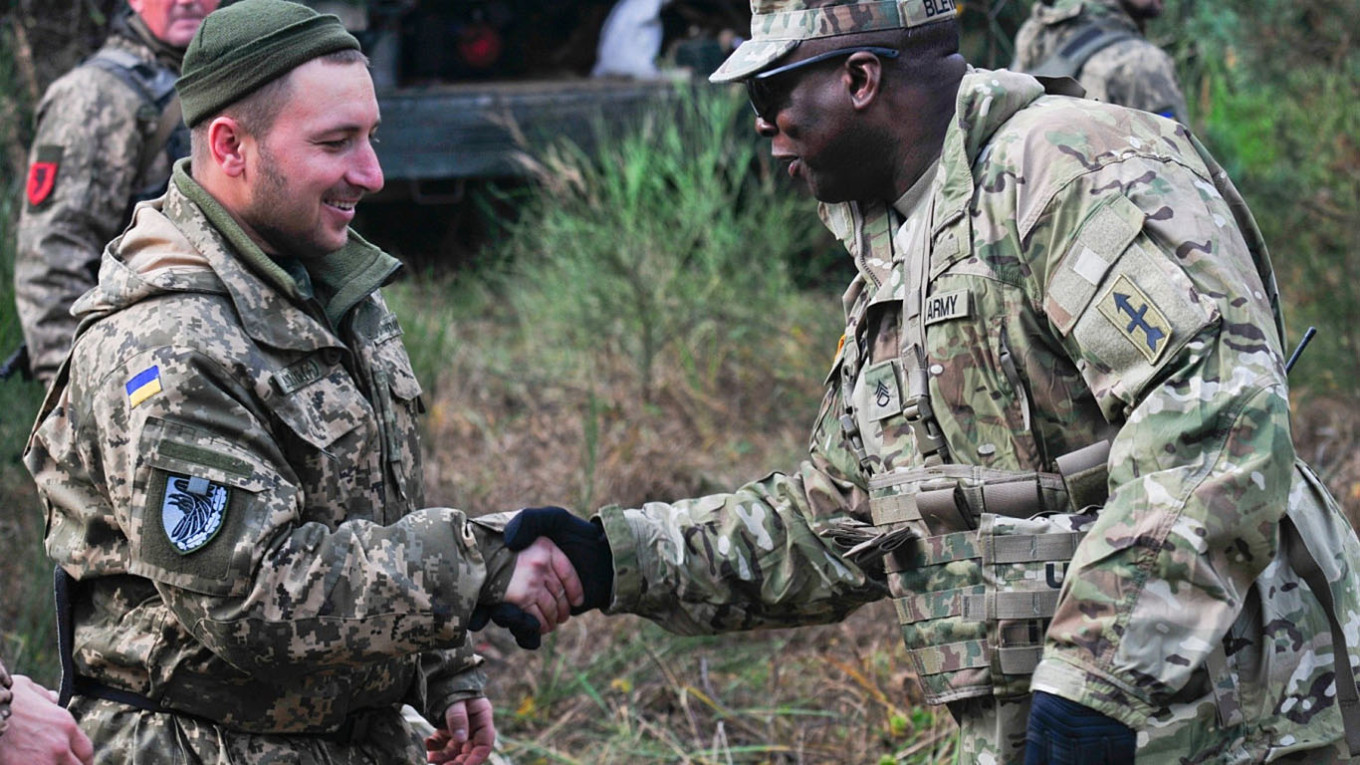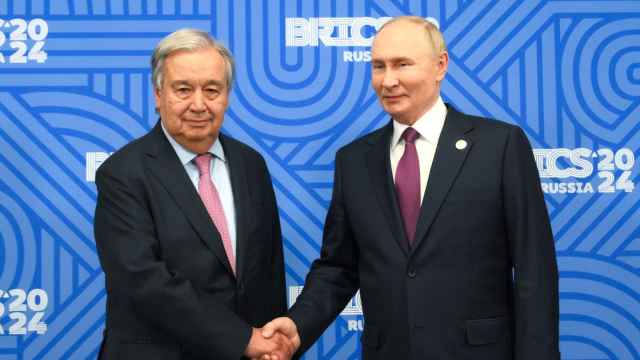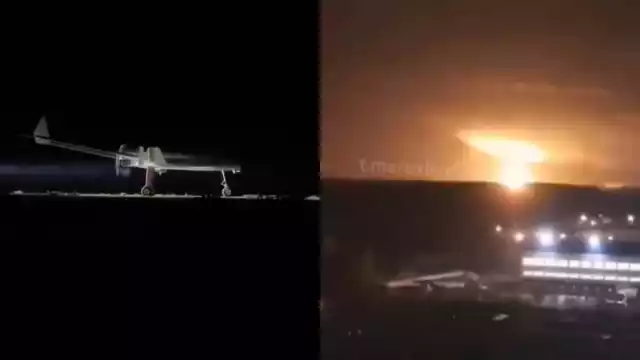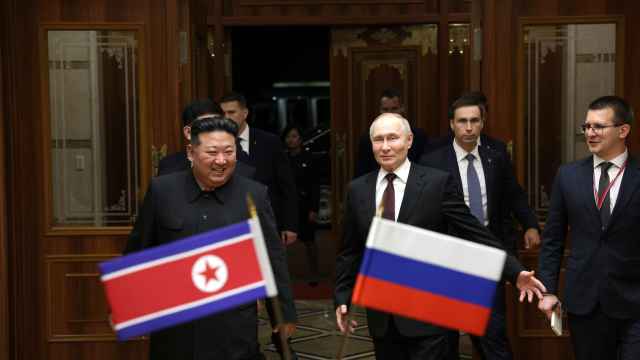Public attention toward peace negotiations is concentrated on the question of territorial concessions. Must Russia’s jurisdiction over Crimea be recognized? Will Ukraine accept the occupation — or even annexation — of the Zaporizhzhia, Kherson, Donetsk and Luhansk regions? What other claims might Russia dream up?
This theme is constantly stoked by Russian representatives making territorial demands, reinforcing the impression that land is the main issue.
In reality, the territorial issue comes to the fore because it is easy to conceptualize. Anyone following the events can look at a map, find Donetsk, Luhansk, Zaporizhzhia, Crimea, draw a line along the front and conclude for themselves whether these regions are essential to Ukraine or could be given up.
But a true peace settlement — not a decorative or declarative one — does not come down merely to ending hostilities. It is about creating a durable, lasting peace — one that will be difficult to break.
The key element of any settlement is not borders or territorial claims, but conditions that ensure a stable, unbreakable peace. This is the core dispute. To achieve such conditions, concessions and compromises may be made — territorial and otherwise.
Ukraine is naturally interested in ensuring that any peace deal with Vladimir Putin (leaving aside how realistic that is) secures a solid future peace. In other words, Ukraine must create conditions in which Putin would find any renewed aggression prohibitively costly, unprofitable, and personally dangerous — forcing him to abandon such plans.
What might those conditions — those security guarantees — look like?
The first and most important guarantee of any state has always been its armed forces. If they are large enough, well-equipped, with high morale and competent leadership, an aggressor will think twice before starting a war. Putin’s decision to invade in 2022 was largely driven by his mistaken belief that Ukraine’s military was weak, incapable and unwilling to fight back.
Ukraine’s armed forces have since proved Moscow wrong, making it even more likely that the Kremlin will want to weaken Ukraine by pushing for its demilitarization.
Another issue is that a large army is expensive. It is doubtful Ukraine can sustain a million-strong force for many years without crippling its economy. It will need external support to mount a credible defense.
Before Putin’s full-scale invasion, membership in a defensive alliance — above all NATO — was seen as the most ironclad security guarantee. The most successful and powerful defense bloc in history is based on Article 5 of the 1949 Washington Treaty, which declares that an attack on one member is considered an attack on all, obligating assistance, including military aid.
But until 2022, few noticed that Article 5 does not explicitly require armed assistance. Everyone assumed, rather carelessly, that if war came, each NATO member would fight like a ferocious beast for another. The United States, as the bloc’s main power, was naturally expected to lead that effort.
Since 2022, after repeated Russian nuclear threats, it has become clear that even NATO members lack substantial guarantees.
NATO’s hesitant policy toward Ukraine has exposed its fear of direct confrontation with Russia. The Biden administration’s cautious, weak approach looked especially pitiful given America’s military might. With Washington being more timid than the governments of much smaller states like Estonia, Moscow and other capitals concluded that nuclear blackmail works. Most NATO states, including the U.S., are catastrophically afraid of nuclear escalation, unprepared to face it and unable to resist someone who recklessly brandishes nuclear weapons.
Russia’s forces could have been defeated and expelled from Ukraine in 2022 if the West had immediately taken a hard line and delivered Kyiv the necessary weapons. Instead, the West flinched and ceded the initiative to Putin, never regaining it — a recipe for defeat.
Despite the fact that Putin’s red lines have been crossed many times without triggering a nuclear strike, Western leaders remain in a state of panic that conveniently justifies inaction. This only strengthens Putin’s belief that his tactics work and may even succeed if he attacks NATO members themselves.
It is easy to imagine that Putin could attack Ukraine again after a ceasefire, threaten its guarantors with nuclear weapons and cause those who promised to intervene to simply walk away. Precedent is not hard to find: the Budapest Memorandum, which guaranteed Ukraine’s security in exchange for surrendering its nuclear arsenal. And the result? A war and empty guarantees.
In short, guarantees that only activate after aggression are no guarantees at all. It would be naïve for Kyiv to expect Britain, France or Germany to declare war on Russia and fight on Ukraine’s behalf. If they truly saw that as possible, why did they not send their troops in 2022 — or even now? Instead, the idea of stationing European peacekeepers in Ukraine has predictably fizzled out. Heaven forbid Putin take offense!
Ukraine needs real, irrevocable guarantees that operate before it next faces Russian aggression. Chief among them would be the stationing of a large foreign military contingent in Ukraine — 50,000 or 100,000 troops with armor, aircraft, and full support infrastructure — belonging to countries Putin would never want to fight.
There are only two such states that could provide this: the U.S. and China.
China, for many reasons, is unlikely to defend Ukraine against the Kremlin, its partner. The U.S., however — if one looks at its real interests rather than Donald Trump’s fantasies — should have considered this option. Only the prospect of war against Washington would force Putin to conclude that attacking Ukraine again would bring guaranteed devastation, outweighing any gains.
This would require political will and legally binding obligations enshrined in U.S. law by Congress, beyond the reach of a presidential decree. Such a law would have to cover funding, supply, troop status, the duration of their deployment and procedures for amendment.
Today, no such guarantee is on the table. On the contrary, the very idea frightens the West and even the U.S. almost as much as the prospect of war itself.
Even a large international force in Ukraine would not fully guarantee peace. Putin’s regime will continue to seek ways to harm Ukraine and Europe: hybrid warfare, interference in domestic affairs, terrorism, cyberattacks, provocations, trafficking components of weapons of mass destruction and more. Combating these threats — along with maintaining peacekeepers and rebuilding Ukraine — would further strain the already heavily burdened economies of Kyiv’s allies.
The current approach of drip-feeding military support to Ukraine is like palliative care: relieving symptoms without curing the disease. Like giving painkillers and fever reducers to a patient with a severe infection, while the pathogen multiplies, poisoning the body and making recovery harder, costlier and more uncertain.
It is far more effective and ultimately cheaper to apply antibiotics — treat the infection at its source.
The problem is not Russia’s territorial claims against Ukraine. The problem is Putin’s regime, which sees external aggression as the key to its political (and perhaps physical) survival. One can only make peace with him on his terms. That means that Ukraine must capitulate, even if the West insists otherwise. Then the victorious Kremlin might deign to show mercy — or might not.
If the goal is to preserve a state’s freedom and the right to choose its own path, the task is not to build walls or plead with the aggressor to stop, but to eliminate the disease itself. If you do not take a full course of antibiotics, the disease comes back stronger than before.
This war can only end by imposing peace on the aggressor — forcing him to stop fighting, ensuring his defeat in Ukraine and bringing down his regime in Russia. That is the only thing that can tryly guarantee peace for Ukraine and the continent as a whole
But Western leaders are not seeing the best solution, but the easiest one. The conclusion of continuing down this path of least resistance is for them to hold up their hands and surrender.
A Message from The Moscow Times:
Dear readers,
We are facing unprecedented challenges. Russia's Prosecutor General's Office has designated The Moscow Times as an "undesirable" organization, criminalizing our work and putting our staff at risk of prosecution. This follows our earlier unjust labeling as a "foreign agent."
These actions are direct attempts to silence independent journalism in Russia. The authorities claim our work "discredits the decisions of the Russian leadership." We see things differently: we strive to provide accurate, unbiased reporting on Russia.
We, the journalists of The Moscow Times, refuse to be silenced. But to continue our work, we need your help.
Your support, no matter how small, makes a world of difference. If you can, please support us monthly starting from just $2. It's quick to set up, and every contribution makes a significant impact.
By supporting The Moscow Times, you're defending open, independent journalism in the face of repression. Thank you for standing with us.
Remind me later.








